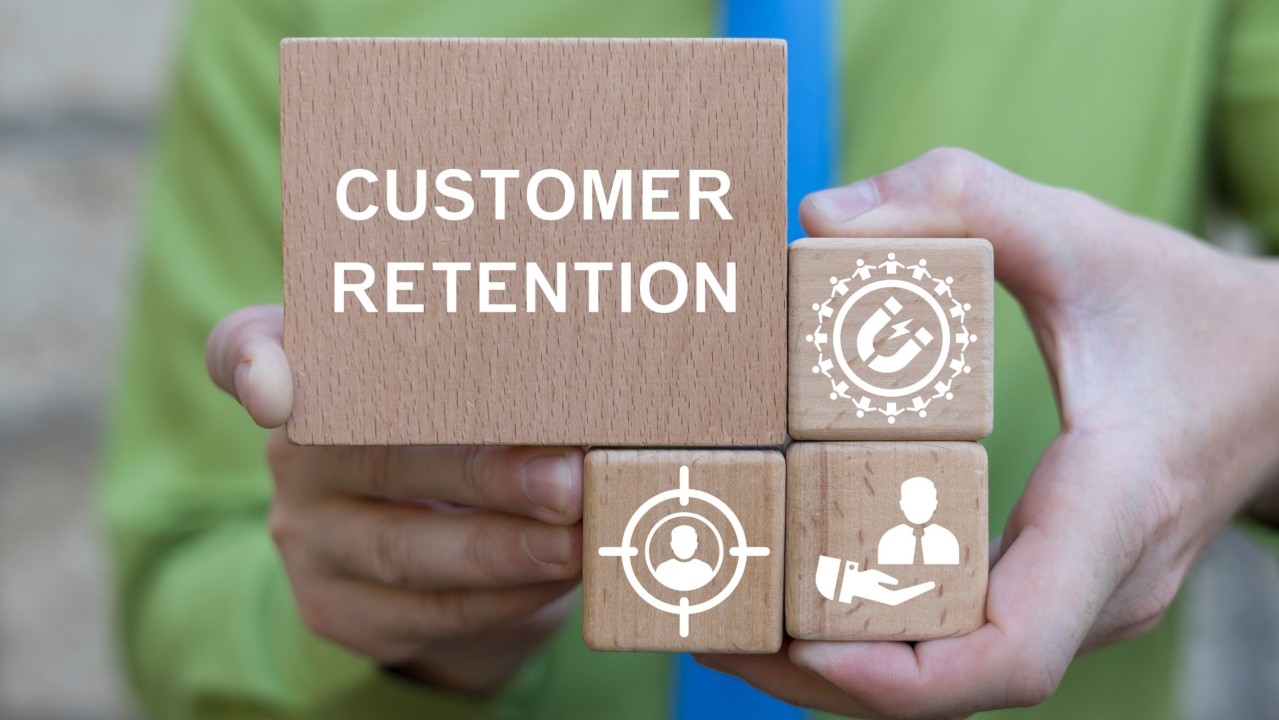News
Leveraging Chatbots for Superior Customer Service and Marketing Efficiency
The rapid advancement of artificial intelligence (AI) technology has brought significant transformations across various sectors, with digital marketing and customer service experiencing substantial evolution. One of the most notable innovations in this domain is the chatbot.
Chatbots are AI-driven programs designed to simulate human conversation, providing a range of services from answering customer queries to guiding purchasing decisions.
Leveraging chatbots for superior customer service and marketing efficiency is increasingly becoming a strategic priority for businesses aiming to enhance their customer engagement and streamline operations.
The Rise of Chatbots in Digital Marketing
Chatbots have emerged as a powerful tool in digital marketing due to their ability to engage with customers in real-time, offering personalised experiences. The demand for immediate responses and 24/7 availability has made chatbots indispensable in meeting modern consumer expectations. According to a report by Business Insider, chatbots are expected to manage 85% of customer interactions by 2024, illustrating their growing significance in the customer service landscape.
Enhancing Customer Service with Chatbots
1. 24/7 Customer Support
One of the primary advantages of chatbots is their ability to provide round-the-clock support. Unlike human agents who require rest and operate within specific working hours, chatbots can engage with customers at any time of day. This constant availability ensures that customers receive immediate assistance, reducing wait times and enhancing their overall experience.
For instance, a UK survey revealed that 51% of customers expect a business to be available 24/7. Chatbots meet this expectation effectively, ensuring no query goes unanswered regardless of the time.
2. Instant Response and Reduced Waiting Time
In the fast-paced digital world, customers expect swift responses. Long wait times can lead to frustration and potential loss of business. Chatbots address this issue by providing instant responses to customer queries. They can handle multiple conversations simultaneously, ensuring that no customer is left waiting. This efficiency not only improves customer satisfaction but also allows businesses to manage higher volumes of inquiries without compromising on service quality.
3. Personalisation and Contextual Understanding
Modern chatbots are equipped with advanced natural language processing (NLP) capabilities, enabling them to understand and respond to customer queries contextually. They can analyse previous interactions, purchase history, and personal preferences to provide tailored responses. This level of personalisation enhances the customer experience by making interactions more relevant and engaging.
For example, a chatbot can recommend products based on a customer’s previous purchases or browsing behaviour, thereby increasing the likelihood of a sale.
Marketing Efficiency through Chatbots
1. Lead Generation and Qualification
Chatbots play a crucial role in lead generation and qualification, essential components of an effective marketing strategy. They can engage with website visitors, gather essential information, and qualify leads based on predefined criteria. By automating this process, chatbots ensure that only high-quality leads are passed on to the sales team, saving time and resources.
According to a study by Drift, businesses using chatbots for lead generation experienced a 67% increase in sales conversions.
2. Interactive and Engaging Content
Incorporating chatbots into marketing strategies allows businesses to offer interactive and engaging content. Chatbots can guide users through a variety of content, such as product tutorials, promotional offers, and interactive quizzes. This engagement not only keeps customers interested but also provides valuable insights into their preferences and behaviours.
For instance, Sephora’s chatbot on Facebook Messenger offers makeup tutorials and product recommendations, significantly enhancing user engagement and driving sales.
3. Data Collection and Customer Insights
Chatbots are a valuable source of data, capturing detailed information about customer interactions. This data can be analysed to gain insights into customer behaviour, preferences, and pain points. By understanding these aspects, businesses can tailor their marketing strategies to better meet customer needs. For example, if a chatbot identifies frequent inquiries about a particular product feature, the marketing team can create targeted campaigns addressing this interest.
In the UK, businesses that leverage customer data effectively can see up to a 15% increase in revenue.
Challenges and Considerations
While chatbots offer numerous benefits, their implementation comes with certain challenges and considerations. Businesses must ensure that their chatbots are designed to provide accurate and helpful responses, as poor interactions can negatively impact customer satisfaction. Additionally, maintaining the balance between automation and human touch is crucial.
While chatbots can handle routine inquiries, complex issues may require human intervention to provide a satisfactory resolution.
1. Ensuring Accurate and Helpful Responses
One of the main challenges in implementing chatbots is ensuring they provide accurate and relevant responses. Poorly designed chatbots can misunderstand queries or provide incorrect information, leading to customer frustration.
To overcome this challenge, businesses must invest in advanced AI and NLP technologies and continuously train their chatbots to improve their understanding and response capabilities. Regular updates and monitoring are essential to ensure the chatbot remains effective and up-to-date.
2. Balancing Automation with Human Interaction
While chatbots can handle a wide range of inquiries, there are instances where human intervention is necessary. Complex issues, emotional concerns, or unique situations may require the empathy and problem-solving skills of a human agent.
Businesses must design their chatbot systems to seamlessly transition from automated responses to human agents when needed. This hybrid approach ensures that customers receive the best possible service, combining the efficiency of automation with the personal touch of human interaction.
Future Trends in Chatbot Technology
The future of chatbot technology looks promising, with continuous advancements expected to enhance their capabilities and applications. Some of the key trends shaping the future of chatbots include:
1. Improved Natural Language Processing
As NLP technology evolves, chatbots will become better at understanding and responding to complex queries. This improvement will enable more natural and meaningful conversations, enhancing the overall user experience. Advanced NLP will also allow chatbots to understand context and emotions, providing more empathetic and appropriate responses.
2. Integration with Other AI Technologies
Integrating chatbots with other AI technologies, such as machine learning and predictive analytics, will further enhance their capabilities. For example, chatbots can use predictive analytics to anticipate customer needs and offer proactive assistance. Machine learning algorithms can continuously improve chatbot performance by analysing interactions and learning from them.
3. Voice-Activated Chatbots
With the rise of voice assistants like Amazon Alexa and Google Assistant, voice-activated chatbots are becoming increasingly popular. These chatbots enable hands-free interactions, providing a convenient and accessible way for customers to engage with businesses. As voice recognition technology advances, voice-activated chatbots will become more accurate and versatile, offering a wider range of services.
4. Increased Personalisation
Personalisation is a key factor in enhancing customer experience, and chatbots are well-suited to deliver personalised interactions. Future chatbots will leverage data from various sources to offer more tailored recommendations and assistance. This personalisation will extend beyond text-based interactions to include voice, video, and augmented reality experiences.
Chatbots have revolutionised customer service and digital marketing, offering a range of benefits from 24/7 support and instant responses to personalised interactions and efficient lead generation. Businesses that leverage chatbots effectively can enhance customer satisfaction, improve operational efficiency, and gain valuable insights into customer behaviour.
While there are challenges to consider, continuous advancements in AI and NLP technology promise a bright future for chatbots, making them an indispensable tool in the digital marketing landscape.
As chatbots become more sophisticated and integrated with other AI technologies, their potential to transform customer service and marketing will only grow. Businesses that embrace this technology and invest in its development will be well-positioned to meet the evolving needs of their customers and stay ahead in the competitive digital marketplace.





The Ultimate Social Media Guide
With the ever-growing power of social media, we use the latest techniques, video, and animation software to craft eye-catching social media assets that make your brand pop. Our designers, wielding Adobe Creative tools, create distinctive animations and graphics to illuminate your brand story and highlight your products or services. Want a unique design? No problem – we also offer bespoke designs to match your brand aesthetic.